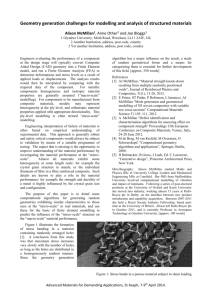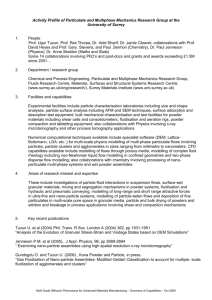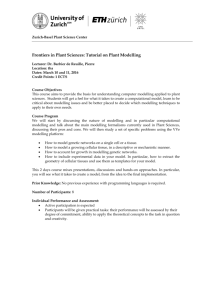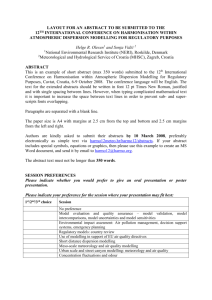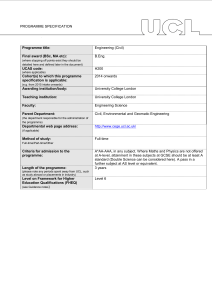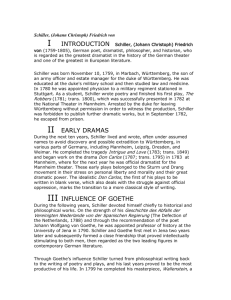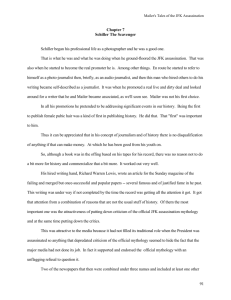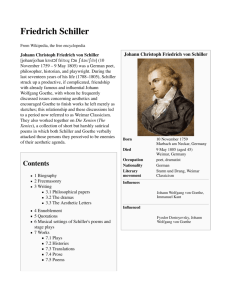Microsoft Word - the NCRM EPrints Repository
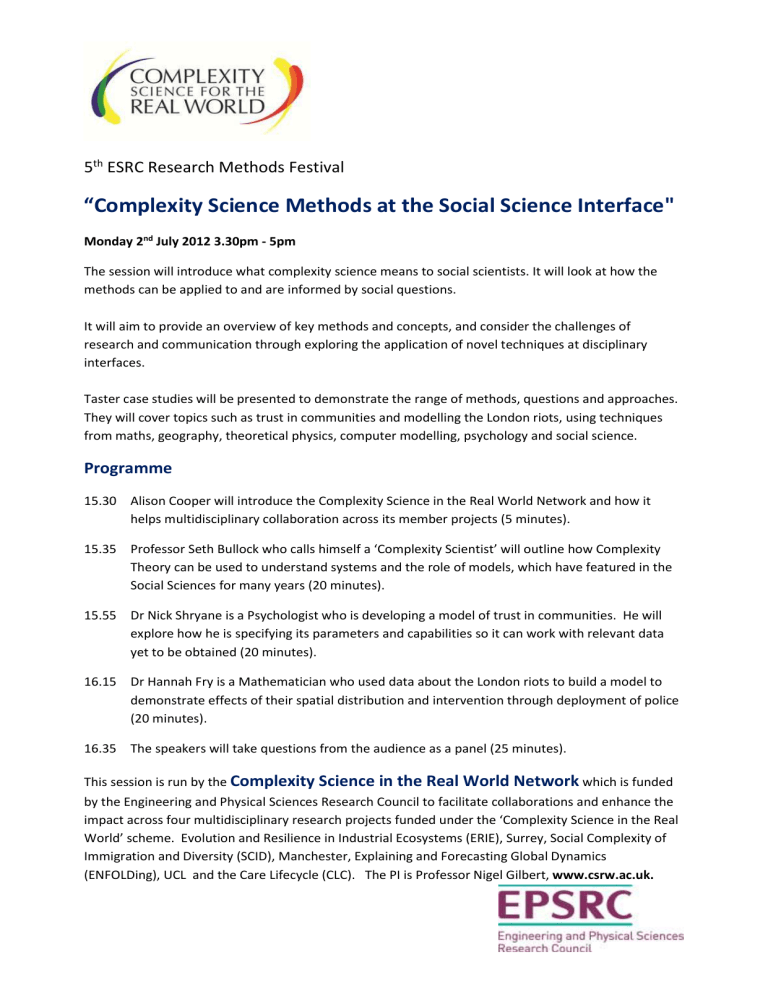
5
th
ESRC Research Methods Festival
“Complexity Science Methods at the Social Science Interface"
Monday 2 nd July 2012 3.30pm - 5pm
The session will introduce what complexity science means to social scientists. It will look at how the methods can be applied to and are informed by social questions.
It will aim to provide an overview of key methods and concepts, and consider the challenges of research and communication through exploring the application of novel techniques at disciplinary interfaces.
Taster case studies will be presented to demonstrate the range of methods, questions and approaches.
They will cover topics such as trust in communities and modelling the London riots, using techniques from maths, geography, theoretical physics, computer modelling, psychology and social science.
Programme
15.30 Alison Cooper will introduce the Complexity Science in the Real World Network and how it helps multidisciplinary collaboration across its member projects (5 minutes).
15.35 Professor Seth Bullock who calls himself a ‘Complexity Scientist’ will outline how Complexity
Theory can be used to understand systems and the role of models, which have featured in the
Social Sciences for many years (20 minutes).
15.55 Dr Nick Shryane is a Psychologist who is developing a model of trust in communities. He will explore how he is specifying its parameters and capabilities so it can work with relevant data yet to be obtained (20 minutes).
16.15 Dr Hannah Fry is a Mathematician who used data about the London riots to build a model to demonstrate effects of their spatial distribution and intervention through deployment of police
(20 minutes).
16.35 The speakers will take questions from the audience as a panel (25 minutes).
This session is run by the
Complexity Science in the Real World Network
which is funded by the Engineering and Physical Sciences Research Council to facilitate collaborations and enhance the impact across four multidisciplinary research projects funded under the ‘Complexity Science in the Real
World’ scheme. Evolution and Resilience in Industrial Ecosystems (ERIE), Surrey, Social Complexity of
Immigration and Diversity (SCID), Manchester, Explaining and Forecasting Global Dynamics
(ENFOLDing), UCL and the Care Lifecycle (CLC). The PI is Professor Nigel Gilbert, www.csrw.ac.uk.
Speaker Profiles
Professor Seth Bullock
, e-mail sgb@ecs.soton.ac.uk
University of Southampton, http://www.ecs.soton.ac.uk/people/sgb
After gaining a BA in cognitive science and a DPhil (PhD) in evolutionary simulation modelling from the
School of Cognitive and Computing Sciences at Sussex University (supervised by Dave Cliff and Phil
Husbands), Seth spent two years in Berlin at the Max Planck Institute for Human Development working with Peter Todd on simulating the evolution of adaptive decision-making behaviour in people and other animals. In 1999 He took up a five-year University Research Fellowship at the University of Leeds and became a Lecturer there in 2004. In October 2005 he joined the University of Southampton as Senior
Lecturer, and helped to found the Science and Engineering of Natural Systems (SENSe) research group.
In 2009 I became head of the SENSe group, and also became Director of Southampton's new institute for Complex Systems Simulation (ICSS). In 2010 he became co-director of the University Strategic
Research Group in Complexity in Real World Contexts (USRG Complexity), for which he runs a Complex
Systems Simulation Seminar Series (CS^4). In 2011 he was promoted to Professor of Computer Science and helped found the Agents, Interaction and Complexity (AIC) research group.
Dr Nick Shryane
, e-mail n.shryane@manchester.ac.uk
University of Manchester, http://www.manchester.ac.uk/research/n.shryane/research
He is interested in the modelling of complex psychosocial systems, attempting to describe and understand the circumstances, attitudes and behaviours of individuals in their social environment. He is particularly interested in the application of these methods to issues of serious mental health and social enfranchisement.
He specialises in statistical analysis using latent variables. This provides a way of studying many of the important aspects of psychosocial systems that aren't directly observable or measurable. Common terms such as 'mental health', 'social capital' and 'ethnicity' actually describe latent variables, hypothetical constructs that we use to make sense of the things we do see in the world around us.
He has recently started to work with agent-based simulation models. These models are computer simulations that can be used to create artificial societies. Much like the 'Sims' games, these societies are composed of many 'agents' who perceive and remember aspects of their environment and interact with each other according to rules. We can use psychological and social theory and data as the basis for these rules and then look at the sorts of social structures that emerge in the models. One current application of this is the 'Social Complexity of Immigration and Diversity' project: www.scid-project.org
Dr Hannah Fry
, e-mail hannah.fry@ucl.ac.uk
University College London, http://www.ucl.ac.uk/bartlett/people/?school=casa&upi=HMFRY30
Hannah’s background is in fluid dynamics, interacting boundary layers and droplet deformation. Her
PhD thesis revolved around modelling the time-dependent distortion of the free surface of an attached liquid droplet in the presence of an external air flow. The work has motivations from medicine and industry - applicable to the treatment of aneurysms and the de-icing of aircraft wings.
Her current research project is in complexity theory, working alongside members of the Centre of
Advanced Spatial Analysis at UCL. The spatial interaction models we aim to create are designed to capture the nonlinear dynamics of real-world mechanisms such as trade, migration and war. The tools used originate from chaos theory, game theory and fluid dynamics and are analysed using bifurcation and stability theory.
Dr Frank Schiller,
e-mail f.schiller@surrey.ac.uk
Frank Schiller holds a PhD in policy in industrialised democracies (where, when) and has a background in political science.
He has a wide research portfolio including policy advisory systems, waste management and sustainability. Particular interests include ecological modernisation and transition management based on resource- and eco-efficiency analysis.
Most notably, Frank has gained experience in the agricultural policy advisory system in a project for the German Federal Ministry for Education and Research, as well as at Cranfield
University’s Collaborative Centre of Excellence on a project entitled ‘Understanding and
Managing Natural and Environmental Risks’
Alison Cooper
, e-mail alison.cooper@surrey.ac.uk
http://www.csrw.ac.uk
Alison is the coordinator of the Complexity Science in the Real World Network. She studied Psychology,
Neuroscience and Science Communication at postgraduate level and played a key role in developing networks and multidisciplinary, cross research council funded projects in areas like Synthetic Biology and Bio Nanotechnology during their emergence as research disciplines, with an emphasis on social and ethical issues. She has over ten years of experience supporting Directors of Research and Pro Vice
Chancellors to develop research strategy and build cross disciplinary faculties. She also has experience in Science Communication, outreach and media.

